Olimpiu G. Urcan
Literary descriptions of scenes from chess tournaments of the past were habitually the work of insiders (e.g. experienced chess columnists). How would a talented sportswriter with little or no chess expertise describe such an event? The February 24, 1927 edition of the Brooklyn Daily Eagle (page 2A) provides an interesting example. It features an essay by George Currie (1895–1953), a Canadian-born, Harvard-educated leading sportswriter, literary editor and book critic for the Eagle. Currie, who also wrote a popular column known as ‘George Currie’s Brooklyn’, began work for the newspaper in 1915. When the U.S. entered the war he volunteered and served in the infantry as a 1st lieutenant. After the war, he became known as a top sportswriter on football but also contributed pieces on other sports to The New Yorker and The Literary Digest. The essay reproduced below was written by the 32-year-old Currie after visiting the Hotel Manhattan in February 1927 where six of the leading chess masters of the time were competing in one of the world’s most famous tournaments.
No Asking or Giving Of Quarter as Chess Masters Match Brains
By George Currie
If you were to ask Capablanca, champion of the world, why the necessity for the Grand Masters International Chess Tournament at the Hotel Manhattan, he would merely shrug his shoulders, beam from out his smouldering brown eyes and call for another pot of coffee and cake.
But if you should wander into the ballroom of the hotel and wait patiently for half an hour, to see one of the master minds of the chessboard make a move, then you should be able to answer your own question.
For there, seated before you at three tables, would sit six of the most gigantic intellects in creation, quietly eyeing their chessmen. A modest picture. But wait.
As the mesmerism of silence bestirs the imagination and lulls the offended senses – senses which reeled from the shock of being assigned to go to a chess tournament – faintly there comes through the ether a Wagnerian ring of steel on steel as a psychic wave flames through the air, is met and is exploded by a resolute psychic resistance. Thoughts struggle in No Man’s Land, that little space of mahogany and boxwood squares lying between the two combatants. It is man to man, in brain to brain conflict. Titanic is no name for it.
As one thought gives away to another, a pawn falls. Desperately the retreating thought strives to rally its forces and after 20 minutes it causes a black knight to bite the dust. Finally, as in the case of Nimzowitsch vs. Spielmann, enough thoughts met in one place on each side to form an inspiration and when the two inspirations had done with smiting, hip and thigh, both queens had been laid to rest.
So weak were the two master minds from this heroic effort that it took 30 minutes to bring them back to the carnage, stripped for more bloodshed.
Aron of Latvia – A Mighty Champion
Probably the two most colorful players at the tournament are this pair.
Aron Nimzowitsch, born in Riga, Latvia, in 1886, is not only one of the masters, but he is also an author. He has written “Die Blockade” and “Mein System”; but it is at the board he shines. He swings a mean rook and his white bishop packs a nasty wallop.
Once he had lots of black hair on the top of his head. But by the time he is ready for his first move it stands in wavy dismay, revealing that so many thoughts flashing from out that great intellect have worn most of the hair from the top of his dome. He is square-jawed, tight-lipped, wears glasses and watches his opponent like a hawk, with eyes as bright as buttons.
He is the Suzanne Lenglen of the tournament, that is, he has most of the temperament. But as Dr. N.L. Lederer truly says, he remains on good terms with everybody. Even a chess tournament needs some temperament and Aron, the mighty warrior from Latvia, fills the bill.
Before he makes a move he grows visibly ecstatic. Ah, one sees him reason, here is a move that will drive my adversary’s thoughts into wildest confusion. And he advances a pawn with the resolution of a Napoleon at Austerlitz.
The Lightning of Thor and Thunder of Woden
The move sets Spielmann’s head a-wagging. Dear, dear, what a catastrophe! Rudolf Spielmann, born in Austria in 1884 [sic], has long since ceased to pretend he has any hair on his head whatsoever. It is rosy and shiny, and gives a clear path to all thoughts issuing from out the intellect beneath. His profile is square and long. His jaw juts out like the bow of a dreadnought. His little eyes snap with the lust of battle. He trembles from head to foot as he ponders the counter-move.
He was an officer in the Austrian army during the war and last year he beat this same Nimzowitsch, who so ruthlessly a moment before had advanced a pawn. Ha, have at them! his intellect cries, letting lose a rain of thoughts. This cannot keep up long. Spielmann fingers his collar, trembles again, gets a grip on himself and like the flash of Thor’s lightning, followed by the reverberations of Woden’s thunder, hurls his inspiration to check the attack of Nimzowitsch, whose hair is now standing on end, like a pussycat stripped for action. Thus it was that the queens died and I passed on to the table of Capablanca and Dr. Vidmar.
A Millionaire Amateur and Electrical Player
Here was an epic battle in another world. Dr. Vidmar is known as the foremost European expert in electro-dynamics. He is a millionaire and a university professor. According to Dr. Lederer, secretary of the tournament, he is strictly “an amateur.”
But should he win the tournament, it will be quite all right to take the $2,000 prize, or the $1,500 second prize, or the $1,000 third prize, according to his skill. It seems the chess people have no qualms about letting amateurs win money. The master minds do not wake up in the morning with a small fortune under their pillows. Neither are they driven to play badly in bad plays to preserve their amateur standing.
He was born in Ljubljana, Jugoslavia, in 1885, and is now professor in Ljubljana University. He, too, is an author of books on electricity.
He is pinkly well-fed. He has a double-chin, smooth, rosy cheeks, a little light mustache and all the hair on the top of his head. His face is round and boyish. And his eyes beam with the warmth of good living and human kindness through highly polished glasses, as he reached forth his ravening hand to destroy one of Capablanca’s bishops.
Capablanca Strikes an Anti-Climax
Now witness the anger of Wotan! Capablanca is the Grand Master of the International Lodge of Chess Minds. To capture the black bishop of Capablanca is either a feather in Dr. Vidmar’s cap or an outrage upon the steps of the altar, according to the way you happen to look at one or the other.
Returning to his seat in haste, on tan shoes that squeak cheerfully with each step, the great master from Cuba folds his hands on the table before him and scans the board in ominous leisure.
His handsome dark face is alight. His hair, theoretically parted in the middle, is rising in bristling affront. It is black hair, shot with occasional streaks of gray.
One waits breathlessly for the revenge of a great master – the stroke of Jove, about to hurl a thunderbolt from Olympus that will utterly wipe out his presumptuous challenger. Dr. Vidmar pleasantly strokes his pink second chin and awaits, oozing confidence.
At last Capablanca is ready. We on the sidelines know it, for he fingers his red necktie thoughtfully.
He reaches forth, while the cosmos pauses in its mad flight through time. Here is to be the move of the century – the simple flash of strategy that will set a thousand chess players wild with glowing acclaim.
He moves a pawn.
The Smoke of Battle is Havana Tobacco
Let us pass to the table at the far end of the room, surrounded by a serious-faced Episcopal clergyman, three schoolboys, one woman and diverse men of deeply knit brows, the sign manual of the amateur chess player.
Here we have Dr. Alexander Alekhine, the Paris lawyer, born in Moscow in 1892. A slight, boyish, pale-faced man, smooth-shaven, devoid of the appearance of emotion, unless one happens to look at his feet, which dance a wild jog upon the floor as he thinks out his next move.
Pitted against him is Frank J. Marshall, the American champion, with the face of a great tragedian. For all his red hair, the best-dressed man of the meet, even down to the grey spats and quiet, dark brown shoes. He is a symphony of double-breasted navy blue. How can so natty a man have a single thought in his head?
He smokes a cigar. Not one of Dr. Lasker’s 5 cent stinkos, which caused the recent chess scandal with its aftermath of charges of dirty work upon the field of play. Marshall carefully blows the smoke high over the head of Dr. Alekhine. Dr. Alekhine retorts by lightning one of those things we’d walk a mile for.
They resume play, this skirmish over.
They don’t knit brows. They smile. Marshall shifts uneasily in his seat. He hasn’t been in form this meet. He has drawn only one game and lost two. He runs his hand over his head, and his neatly-combed hair loses its decorum and strays wildly. Both he and Dr. Alekhine are great thinkers, who have saved all their hair.
Marshall Shrugs and Alekhine Lights Up
Marshall, with a shrug of well-fitted shoulders, advances a bishop. Alekhine lights another four-footed cigarette and calmly settles down to study a defense against this ecclesiastical intrusion.
His feet do a livelier jig under the table. He looks like a rather handsome marionette, dancing on the end of a string. He runs his hand over his face and shuts his eyes, stern eyes that look coldly from behind gold-rimmed glasses. He fingers his wing collar and adjusts the knot of his tie. He looks all around the room, everywhere but the chessboard.
Then he decides to swap bishops, and the fight is on again.
Money Makes Masters Think Great Thoughts
What is it all about? Money prizes, fame and contracts. For it seems that there is such a thing as exhibition chess, with a good fat gate.
Where does the prize money come from? From enthusiasts, such as George Emlen Roosevelt, Felix E. Kahn, Lessing Rosenwald and a host of others, including Edward Lasker and Albert N. Hallgarten.
Governor Smith will present the prizes at the banquet, over the peace table. For chess is warfare in miniature and there is no asking or giving a quarter upon the field of honor. But at the end of the tournament the player, who train on coffee and cake, will turn their attention to sterner feats at trencher. There does seem to be some reason for chess tournaments, after all.


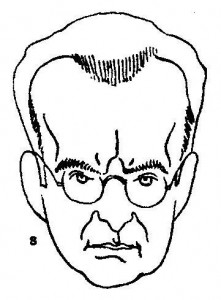
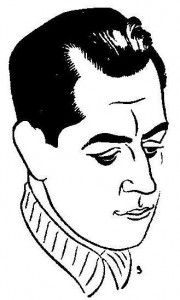
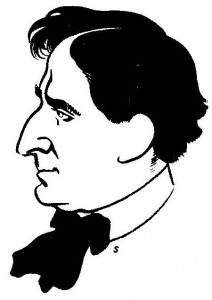
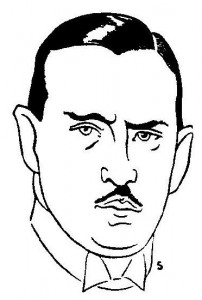

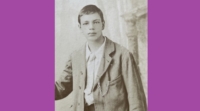
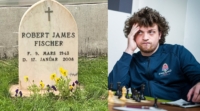
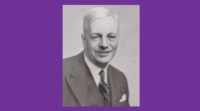
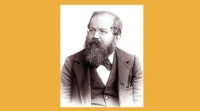
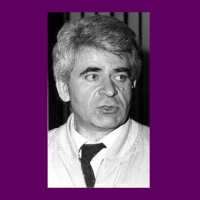
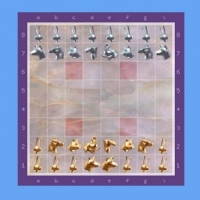
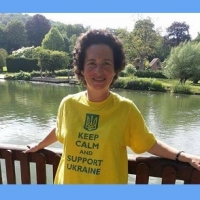
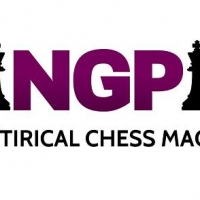
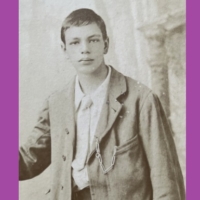
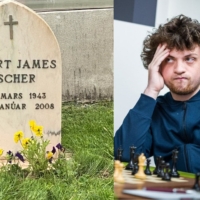
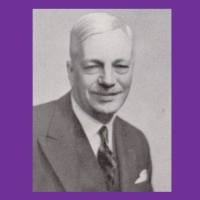
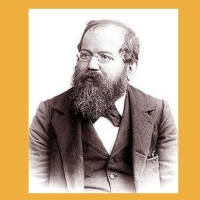
Very interesting and important for the “caissa lovers”. Thanks for sharing!